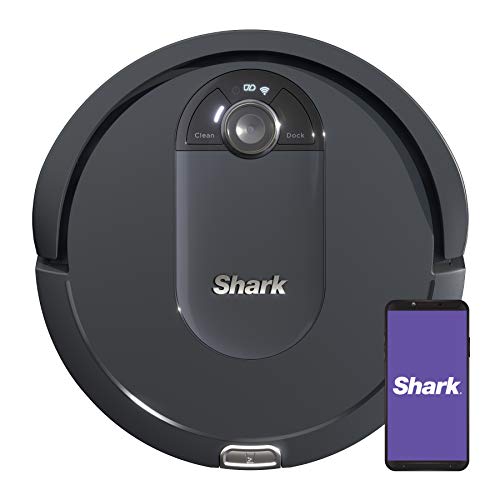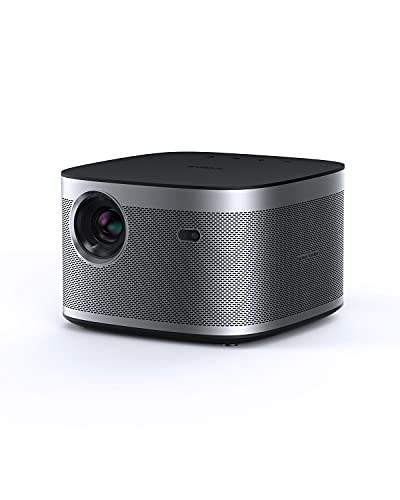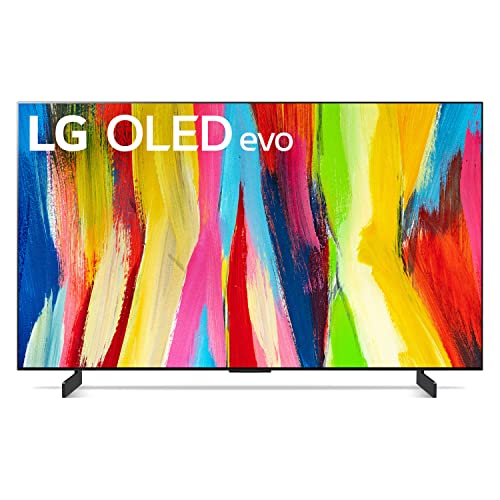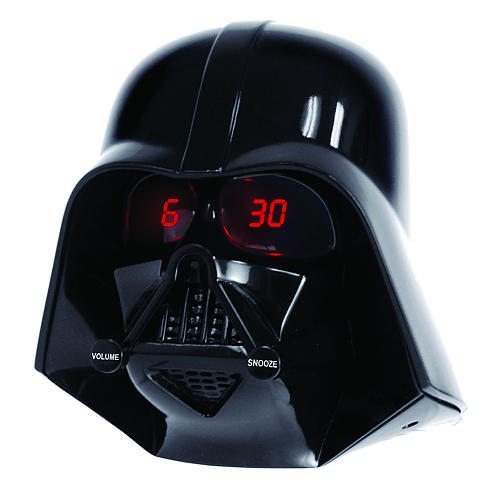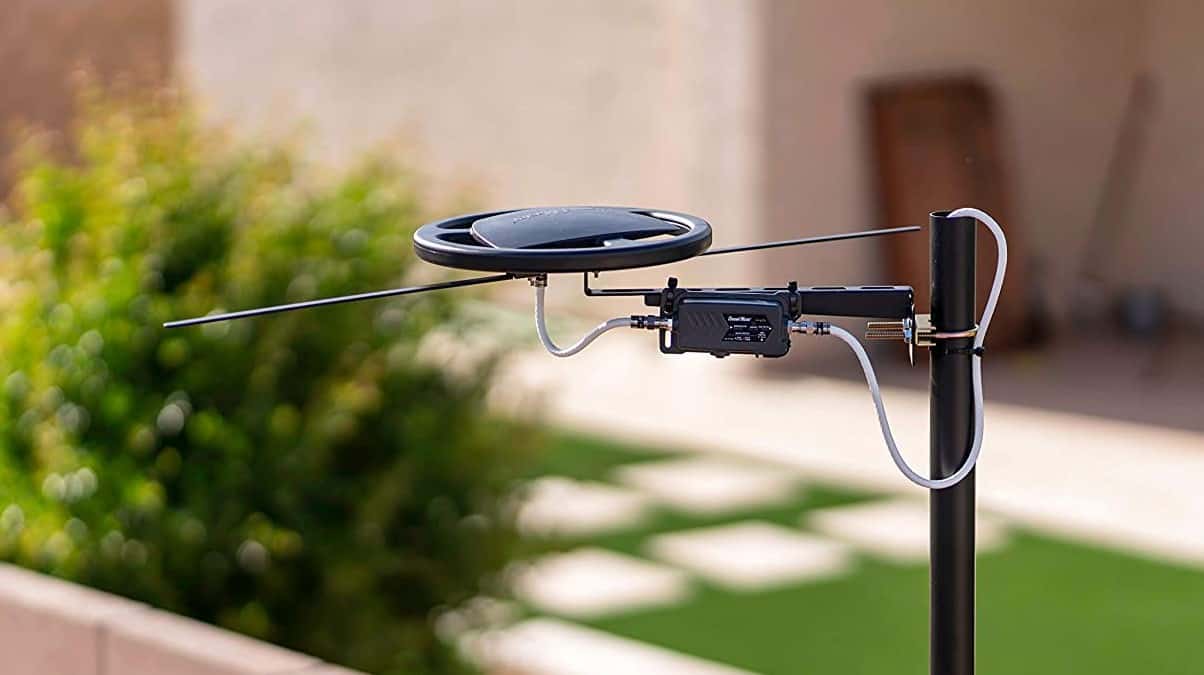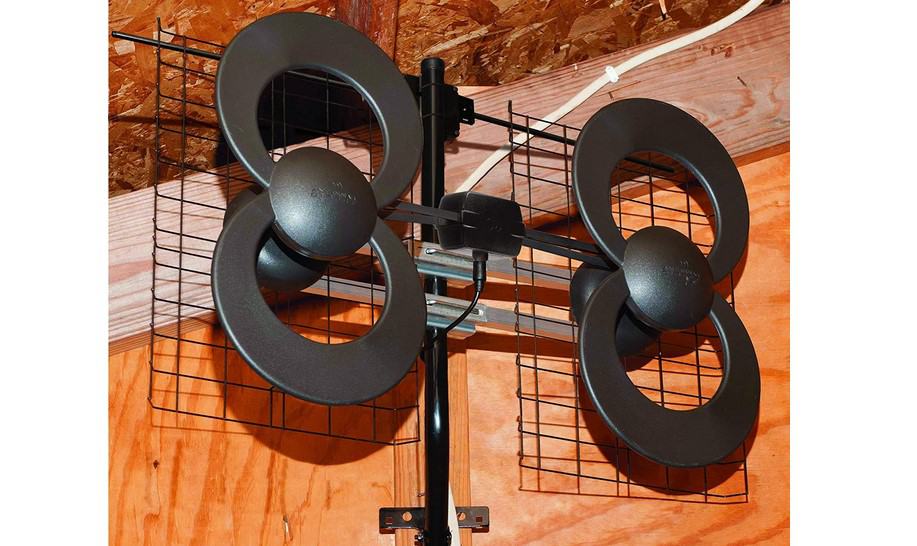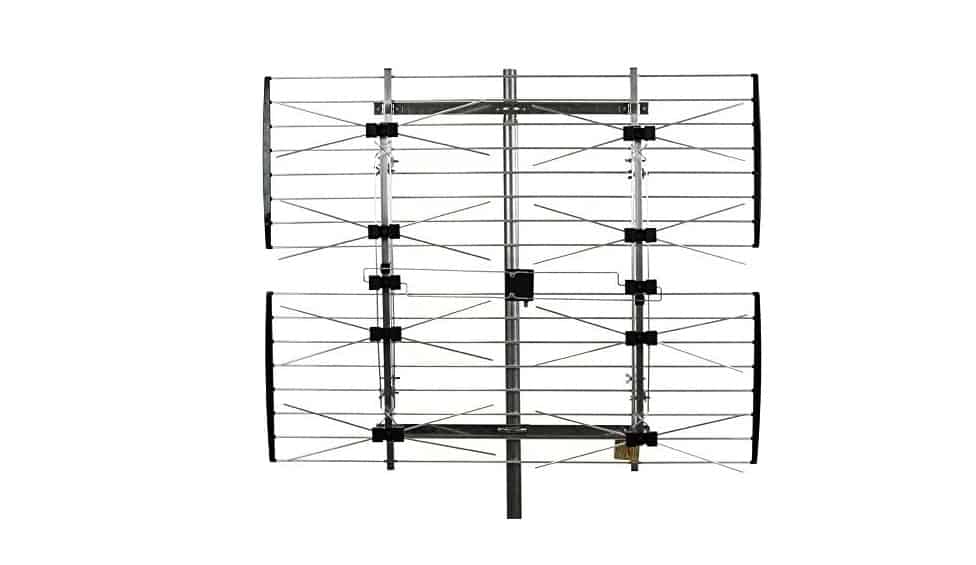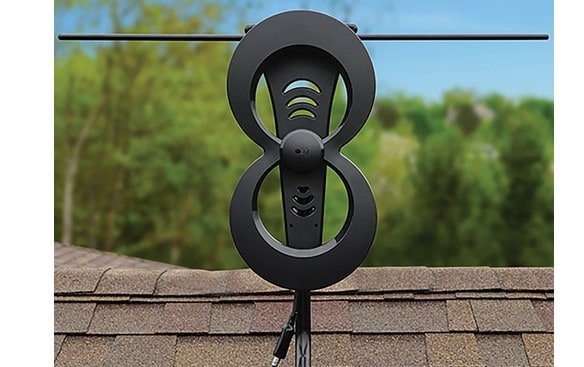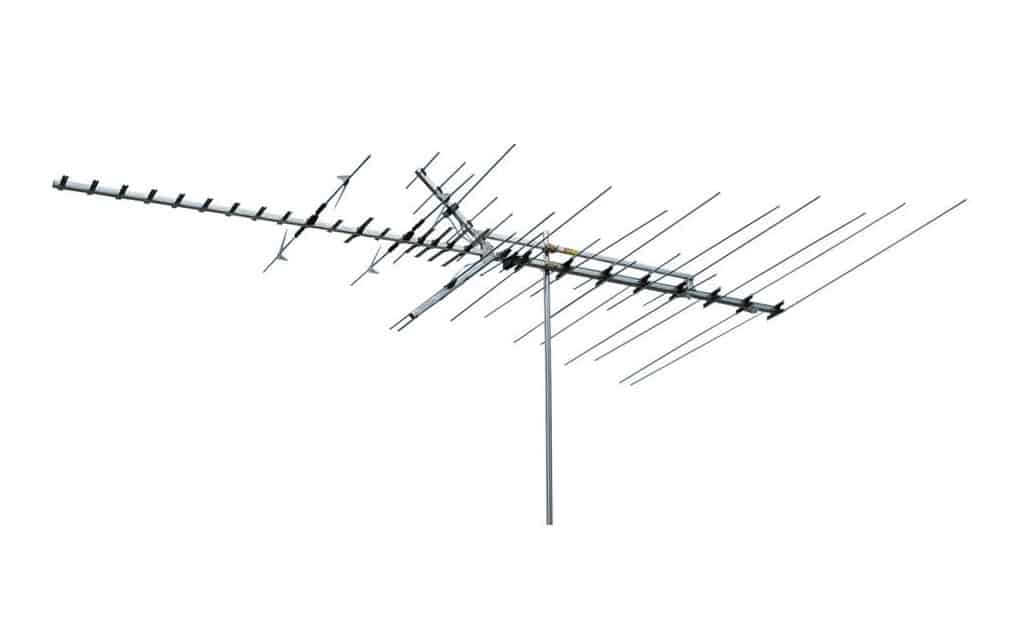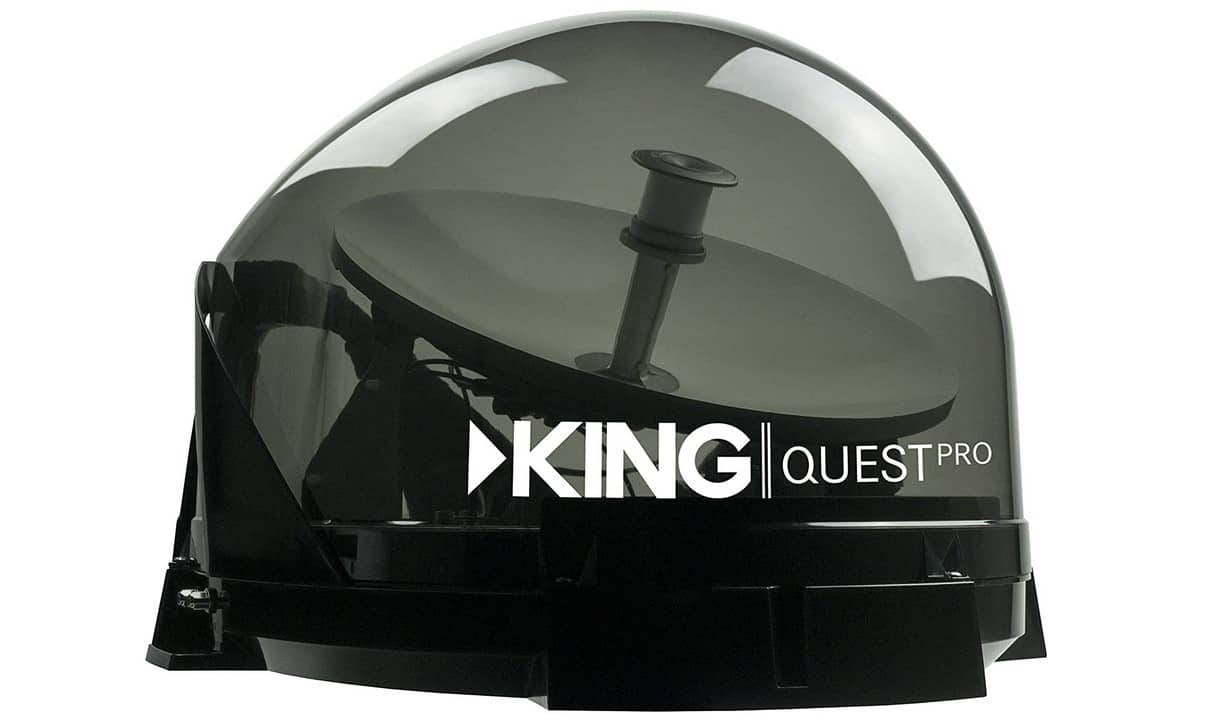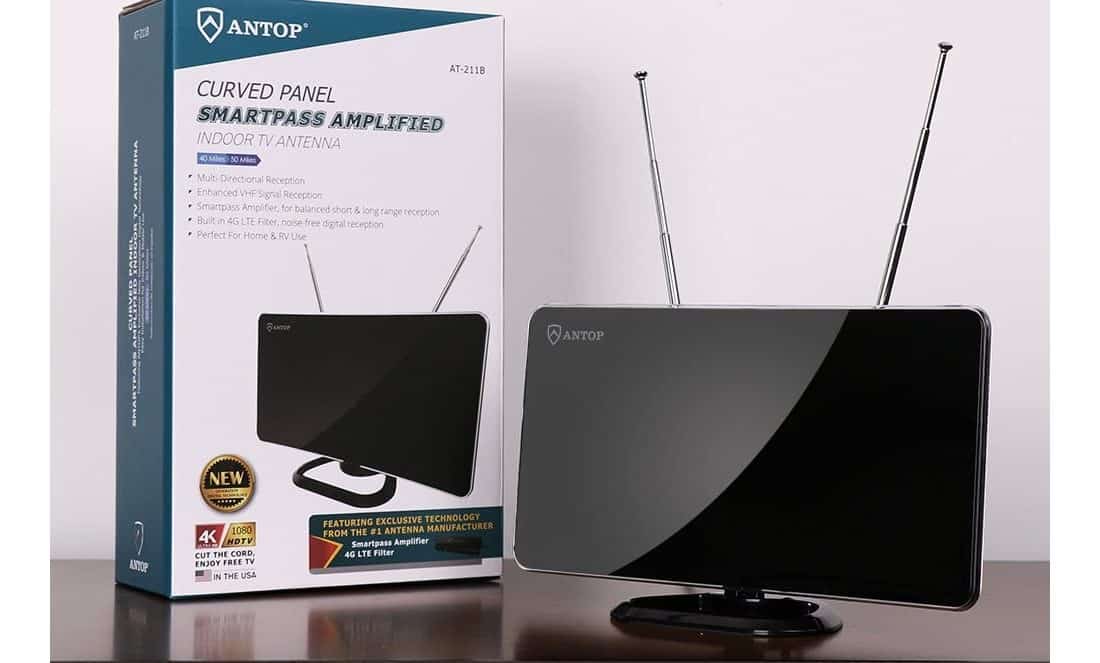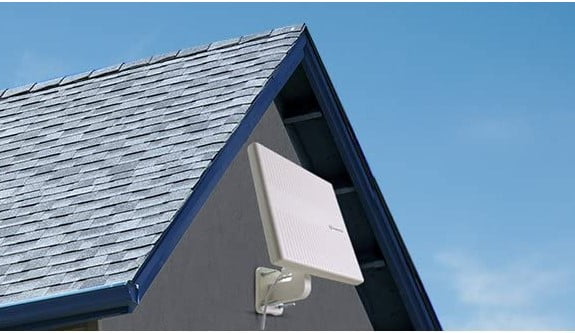What are the features that make the best 4K TV for gaming? On top of their improved picture quality and sharpness, these televisions offer fast gaming performance thanks to their low input lag, fast response times, and high refresh rates.
The top 4K gaming TVs also offer long-lasting reliability and future-proofed connectivity that will keep you at the top of your game for years to come. With HDMI 2.1 connectivity, gaming modes, and HDR support, these TVs are well-equipped for even the most competitive gamer.
Finally, you can rest assured that the best 4K TVs for gaming will give you more than enough versatility to enjoy movies or surf the web thanks to built-in smart functionality.
Keep reading to learn more about the best TVs for gaming and how they can take your gaming to the next level.Intro paragraph 1
Top 4K TVs for Gaming
#1 TCL 50S435 Class 4 Series UHD Smart TV
Award: TOP PICK
WHY WE LIKE IT: The TV supports a wide range of apps and Internet services and delivers epic gaming visuals thanks to its support for HDR content.
- Stunning 4K picture quality
- Support for HDR content
- Easy to navigate Roku TV platform
- No HDMI 2.1 port
The TCL 50S435 is a Smart 4K TV that uses LED display technology to deliver impressive image clarity for the most vivid visuals when gaming. The display is available in up to six different sizes, with its largest variant being the 85-inch model. Although the streaming quality is pretty good courtesy of the TV’s support for HDR content, the lack of an HDMI 2.1 port might force owners of more modern consoles such as the PS5 or Xbox X Series to consider other options.
Streamers will also enjoy the wide variety of content available on its Roku TV platform, as they’ll have access to popular streaming services such as Netflix, Amazon Prime, Disney +, and HBO. It supports both HDMI and USB connectivity since it comes with 3 HDMI inputs and 1 USB input and allows for voice control through the Roku Mobile App. Its 4K upscaling technology is also sublime, and its Roku TV platform provides access to over 500,000 movie and TV titles for seamless entertainment.
#2 Sony KD-75X80J 4K Ultra HD TV
Award: HONORABLE MENTION
WHY WE LIKE IT: The TV comes with modern features that have it produce vivid colors and ensure that fast-moving scenes remain accurate and smooth enough for players to enjoy when playing fast-action games.
- Super accurate color reproduction
- Support for both Dolby Vision and HDR
- Easy to navigate Google TV platform
- No Variable Refresh Rate
The Sony X80J is a 4K TV that delivers ultra-smooth picture quality courtesy of its 4K HDR processor. It comes with Triluminos technology that produces ultra-realistic color for surreal gaming and supports Apple Airplay. Avid gamers will likely appreciate its low input lag and wide viewing angles. Still, its lack of a Variable Refresh Rate may make them turn elsewhere for an even smoother gaming experience.
The X80J runs on the Google TV platform that makes accessing over 700,000 movie and TV titles very easy to do, and with Chromecast built-in, users will also be able to stream content from their phone, laptop, or tablet directly onto the TV. Fast-moving scenes get processed very well thanks to the TV’s MotionFlow technology, and with support for both Dolby Vision and HDR, movie watching becomes almost a cinema-like experience.
#3 LG OLED55C1PUB C1 Series 4K Smart TV
Award: BEST FOR SMOOTH GAMING
WHY WE LIKE IT: The TV delivers perfect blacks courtesy of its self-lit pixels and allows users to experience movies as directors had envisioned through its Filmmaker mode.
- Excellent blacks thanks to self lit pixels
- 1ms response time for super quick reactions
- Support for both G-Sync and FreeSync technologies
- Limited HDR brightness
The LG OLED 55C1PUB is a Smart 4K TV released in 2021 that promises to deliver crystal clear picture and sound quality thanks to its A9 Gen 4 AI processor, which improves sound picture quality depending on the scene and genre. The Smart TV is also an excellent choice for gaming thanks to a 120Hz refresh rate that eliminates screen tearing, but its limited brightness level may not be fit for viewing under brightly lit conditions.
Despite that, the TV delivers a near-cinematic viewing experience thanks to its Filmmaker Mode, which allows owners to experience content as the creators had envisioned through automatic settings. Sports fans will also appreciate the TV’s Sports Alert feature, which gives score alerts or game fixture announcements when watching other content. Its self-lit OLED pixels deliver perfect blacks, and with support for both G-Sync and FreeSync technologies, gaming feels as smooth as can be.
#4 Samsung Neo QLED QN90 Series
We’re sorry, this product is temporarily out of stock
Award: BEST PICTURE QUALITY
WHY WE LIKE IT: Brightness levels are excellent for viewing under well-lit conditions, and sound is relayed according to on-screen action to create an immersive viewing experience.
- Excellent upscaling of content to 4K quality
- Object Tracking Sound for an immersive audio experience
- Ultra Wide Game View for seamless gaming
- Noticeable Dirty Screen Effect
The Samsung NEO QLED QN90 Series is a Smart TV that is available in various sizes and promises to upscale content to 4K quality thanks to its Neo Quantum Processor. It processes fast-moving scenes very well, courtesy of its advanced motion clarity technology, and thanks to Object Tracking Sound, audio feels realistic and is projected according to the content displayed on the TV. Its Ultrawide Game View provides a broader field of view when gaming, but the presence of a dirty screen effect may dissuade some buyers.
Brightness levels on the Samsung QN90 are excellent since the display is easily viewable even in well-lit environments, and its built-in support for Amazon Alexa and Google Assistant makes voice control as seamless as can be. With support for Samsung TV Plus, viewers will also enjoy hours of subscription-free content, and its anti-glare screen will help prevent any eye irritation even with long periods of viewing.
#5 Hisense 43A6G 4K Ultra HD Smart TV
Award: BEST FOR CASUAL GAMING
WHY WE LIKE IT: The TV’s diverse selection of content, courtesy of its Android TV app, promises to always keep owners entertained, and its Voice Remote allows for more convenient command execution.
- Great upscaling of High Definition content
- Auto Low Latency Game Mode for easy gaming
- Bluetooth for seamless wireless connectivity
- Limited brightness
- Mediocre contrast
The Hisense 43A6G is a 4K Ultra HD TV announced in 2021 that relies on a full array LED backlight to produce a colorful picture and features support for Dolby Vision HDR and HDR10 technology for sharper details when watching movies. Its Auto Low Latency Game Mode takes away the need to make adjustments when gaming and its support for both Google Assistant and Amazon Alexa allows for voice control whenever owners don’t want to use a remote. However, due to mediocre contrast and limited brightness levels, dark scenes may not be as potent.
Content upscaling is impressive on the 43A6G, and with the wide range of content available on the Android TV app, viewers will have access to a vast collection of content and view it in HD quality. They’ll also be able to connect their devices to it thanks to Chromecast and cast photos, videos, or music onto the TV. The TV’s high resolution allows for excellent TV viewing and support for Bluetooth connectivity, users will be able to connect to compatible audio enhancements.
#6 Vizio P65Q9-J01 4K UHD Smart TV
Award: BEST FOR COMPETITIVE GAMING
WHY WE LIKE IT: Excellent contrast, impressive brightness and advanced game features make this premium TV an allrounder that’ll still be great for movie watching
- Stunning contrast thanks to 144 local dimming zones
- Great brightness
- Support for Voice Control
- Likelihood of dead pixels appearing on display
The Vizio P65Q9-J01 is a premium 4K display that promises to have users enjoy exceptional detail thanks to its 8 million pixels and capacity to display over 1 billion colors. Its calibration of bright and dark scenes is near excellent thanks to its 144 local dimming zones, and its 1200 nit peak brightness level makes sure content remains well visible even in bright rooms. The TV integrates seamlessly with Alexa, Google Home, and Apple Homekit for seamless voice control. However, past users have complained of the appearance of dead pixels, which had them return their purchase.
Gaming on the Vizio TV is a joy thanks to its ProGaming Engine, which lowers its input lag to 7.1 ms and allows for super quick responsiveness. It also has a 120Hz refresh rate and features 4 HDMI 2.1 ports for compatibility with next-gen gaming consoles. Its Auto Game Mode optimizes it for improved gaming performance and its free collection of channels keeps users entertained without any additional costs.
Beginner’s Guide to 4K TVs for Gaming
What Are 4K TVs for Gaming?
In the simplest terms, a 4K TV for gaming is a display device that connects to an external device like a gaming console or Blu-ray player to show you visual data in a way your eyes understand. 4K TVs for gaming typically connect to other devices wirelessly or using a display cable.
These televisions also usually include internet functionality, meaning they can connect to your home network and stream content without the need for an external streaming device.
4K TVs for Gaming vs. Traditional TVs
The design of both 4K gaming TVs and traditional TVs is essentially the same, other than the subtle differences between the designs of individual brands. The main differences come into play when you consider the image quality and gaming performance of 4K gaming TVs.
For starters, 4K gaming TVs all offer a high level of resolution at 3840×2160 pixels. This creates sharp images with rich color and deep blacks you can’t find anywhere else. The vast majority of traditional TVs offer full HD resolution (1920×1080 pixels) or lower, although 4K is becoming more commonplace as the technology becomes more affordable.
The products in this category also offer gaming-specific features like a game mode, high refresh rates, and low input lag. These features provide a more responsive gaming experience over traditional TVs.
How 4K TVs for Gaming Work
4K TVs for gaming work in the same way as any other television. Once your TV is plugged into the wall and connected to your gaming system, Blu-ray player, or streaming device, it will display the visual data those external devices are outputting.
In a more technological sense, all 4K TVs use liquid crystal display (LCD) technology to produce images and color. An LCD uses two panels of glass to house a liquid crystal material that reacts to electric current. Once you turn on the TV, the electric current runs through the liquid crystal, which rearranges to form images.
Your 4K TV will also utilize one of three backlighting panels to reproduce the images coming from your gaming systems:
- LED: LED stands for light-emitting diode. This is the most common form of 4K display technology. In LED TVs, the backlighting comes from panels of individual light-emitting diodes. Some of these TVs also offer edge lighting for higher peak brightness levels. If you’re looking for a budget gaming TV, you’re most likely to find something in the 4K LED category over QLED or OLED.
- QLED: QLED stands for quantum dot LED. These TVs use a quantum dot layer underneath the LCD to filter the light from the LED backlighting, which creates more saturated colors. If you’re looking for the best color accuracy, then a QLED is an excellent choice.
- OLED: OLED stands for organic LED. If you opt for an OLED TV, expect to pay a pretty penny, but for good reason. An OLED TV uses LED backlighting combined with self-lit pixels. This means each pixel can turn itself on or off as needed, creating true black as well as excellent all-around colors. An OLED TV offers wide viewing angles and the best picture performance of any LED TV. If your budget allows for it, we always recommend purchasing an OLED TV over anything else.
Do You Really Need a 4K TV for Gaming?
If you’re looking to upgrade your old 1080p gaming TV and future-proof your gaming setup for the next gaming console releases, then a 4K gaming TV is a must-have. Their increased image quality and gaming performance are well worth it. If you want to get the ultimate image quality experience, you might also want to check out the best 8K Tvs.
Is a 4K TV for Gaming Worth Buying?
- You Play Video Games on Current Gaming Systems: For you to fully enjoy 4K gaming, you’ll need a current gaming console that supports ultra HD video games. This means you’ll need to own a PS4 Pro, PS5, Xbox One S, or Xbox Series X to get the most out of a new 4K TV. If you do own one of these next-gen consoles, then a 4K gaming TV is absolutely worth buying.
- You Enjoy 4K Movies and TV Shows: It’s likely that you won’t just be gaming on your 4K TV. If you enjoy watching movies and TV shows with the highest possible image quality and color accuracy, then a good 4K TV for gaming is your best bet.
- You Want a Future-Proof Television: 4K resolution is quickly becoming the standard for image quality in televisions, taking the place of full HD. If you want a TV that is future-proofed for years to come, then you can’t go wrong with a 4K option.
Why a 4K TV for Gaming May Not Be For You
- You Play Games on a PC: If you play video games on your PC instead of on a gaming console, then a 4K television probably isn’t best for you. This is because gaming monitors made specifically for use with gaming computers usually offer faster response times and lower input lag than TVs.
- You Own Last-Gen Gaming Systems: If you own a PS4, Xbox One, or older gaming system, then you won’t get the most out of a 4K TV. This is because those older generation gaming consoles don’t support 4K resolution at all. If this is your situation, then a cheap gaming TV with 1080p resolution is likely better than a 4K option.
- You Don’t Have an Extensive Budget: For you to get a true 4K gaming experience, you need more than just a 4K TV. You’ll also need 4K-capable streaming devices, gaming consoles, and display cables. On top of that, you’ll need a fast internet connection for consistent ultra HD streaming and online gaming. If you don’t have the budget to pay for all of these things, then a UHD TV might not be the best for you.
How Long Will a 4K TV for Gaming Last?
In most cases, top manufacturers measure lifespan by rating how long the LED lights inside of their TVs last until they dim to the point of being unusable. According to top industry experts, like those at Visual LED, an LED TV should last anywhere between 60,000 to 100,000 hours.
How to Choose the Best 4K TV for Gaming
When it comes to finding the best 4K gaming TV for your needs, you’ll need to consider factors like screen size and image quality, along with advanced functionality like Dolby Atmos and Dolby Vision compatibility.
On top of these features, you’ll specifically want to consider gaming performance features like variable refresh rate, low input lag, and fast response times.
Read through the following questions to learn which factors are most important to consider.
4K TV for Gaming Key Factors to Consider
1. What does your TV need in terms of image and picture quality?
Since 4K gaming TVs already offer a high level of sharp detail thanks to their 4K screen resolution, you may wonder what other image quality considerations to make. For excellent image quality, consider these features:
- Screen size: The screen size you purchase for your 4K TV ultimately depends on the size of your room and your individual preferences. For most console gamers, a 55-inch model tends to be the most popular. However, anything in the 55-85 inches range works well, as long as you have the space for it. If you’re limited on space, we recommend an option in the 32-50 inches range.
- Color reproduction: Your TV’s ability to produce vivid colors plays a huge role in overall picture quality. You’ll want to look for a TV that offers a wide color gamut to get the best overall color accuracy.
- Contrast ratio: Televisions with excellent contrast ratios create deeper black levels, which is essential for dark room gaming or dark scenes in movies. A higher contrast ratio will more reliably create those deep blacks that make games look and feel better.
- HDR vs. Dolby Vision: High dynamic range, or HDR, is a feature that extends the range of your TV’s peak brightness levels. There are two main categories of HDR technology that you need to consider: HDR10 and Dolby Vision. The best 4K HDR TV for gaming offers HDR10 at a bare minimum.While next-gen gaming consoles like PS5 and Xbox Series X currently only support HDR10, there are rumors that they will start to support Dolby Vision soon. If you want to future-proof your 4K TV, we recommend purchasing an option with Dolby Vision support.
- Contrast ratio: Televisions with excellent contrast ratios create deeper black levels, which is essential for dark room gaming or dark scenes in movies. A higher contrast ratio will more reliably create those deep blacks that make games look and feel better.
- Color reproduction: Your TV’s ability to produce vivid colors plays a huge role in overall picture quality. You’ll want to look for a TV that offers a wide color gamut to get the best overall color accuracy.
2. What does your TV need in terms of gaming performance?
When it comes to your TV’s gaming performance, consider these features:
- Refresh rate: This refers to your TV’s ability to refresh itself with a new image every second, measured in Hz. The higher the number, the better. For the best gaming experience, we recommend purchasing a 4K TV with a 120Hz panel. The best 120Hz 4K TV eliminates screen tear and motion blur for a smooth gaming experience.
- Input lag: This refers to your TV’s ability to display onscreen the actions you’re taking on your controller. Lower numbers are better when considering input lag.
- Response time: This refers to your TV’s ability to switch between different colors. Lower numbers are better when considering response time.
- Input lag: This refers to your TV’s ability to display onscreen the actions you’re taking on your controller. Lower numbers are better when considering input lag.
3. What does your TV need in terms of connectivity?
Most gaming consoles require an HDMI connection to your television. As such, you’ll mainly need to consider an option with at least one HDMI input port. If you play on multiple consoles or you also want to connect a soundbar or Blu-ray player to your TV, you’ll want to consider an option with multiple HDMI ports.
Next-gen consoles use the HDMI 2.1 port for higher visual quality. If you want the fastest and most visually stunning gaming experience, we recommend purchasing a TV with HDMI 2.1 compatibility.
4.Should you buy a 4K gaming TV with adaptive sync technology?
Adaptive sync technology used to be solely for gaming PC monitors, but it has slowly started to appear on 4K TVs. This refers to the television’s ability to sync its frame rates with the graphics cards in gaming consoles.
A TV with a variable refresh rate and adaptive sync technology creates a seamless gaming experience with minimal motion blur or screen tearing. If you’re a competitive gamer, we highly recommend purchasing a TV with this functionality.
5. Should you buy a smart 4K gaming TV?
A 4K gaming TV with a smart platform allows you to access the internet and streaming services without connecting to an external streaming device. Most smart TVs use their own proprietary smart TV platform, but there are those that use common operating systems like Android TV.
The best smart TV for gaming should offer a seamless and reliable user experience since the TV’s smart features are going up against the same functions on your gaming console.
4K TV for Gaming FAQs
Do I need a TV with HDMI 2.1 for PS5 and Xbox Series X?
You don’t need a TV with HDMI 2.1 connectivity to play games on your PS5 or Xbox Series X. However, the entire visual experience is much better with an HDMI 2.1 connection. HDM1 2.1 supports 8K frame rates at 120 frames per second.
Do you need a 120Hz gaming TV?
A 120Hz gaming TV is the best option for current-gen consoles, which support games that run at 120 frames per second. Last-gen consoles only a maximum of 60 frames per second. A 120Hz gaming TV will create a smooth viewing experience no matter what you’re playing, especially when compared to 60Hz gaming TVs.
Is ultra HD better than 4K?
Ultra HD and 4K screen resolution refer to the same thing, so one isn’t better than the other.
Is a 4K TV for gaming worth it?
Yes, a 4K TV for gaming is absolutely worth it if you want the most immersive gaming experience possible.

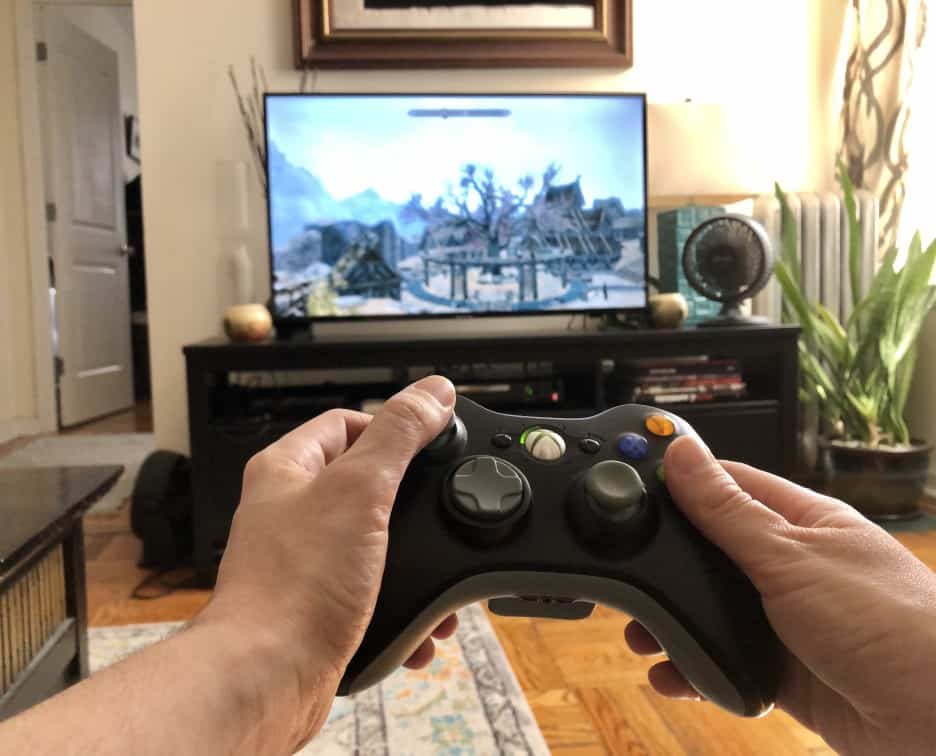











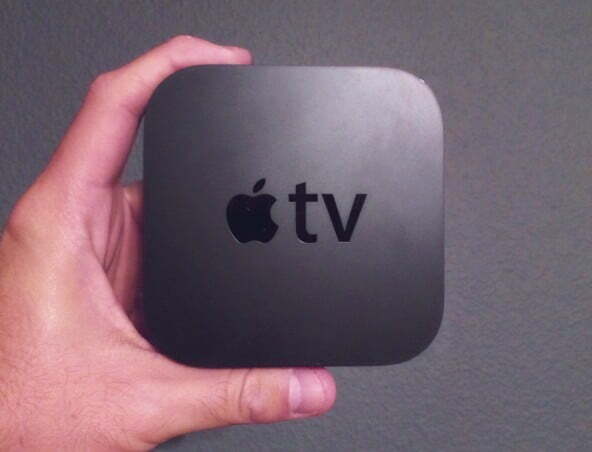

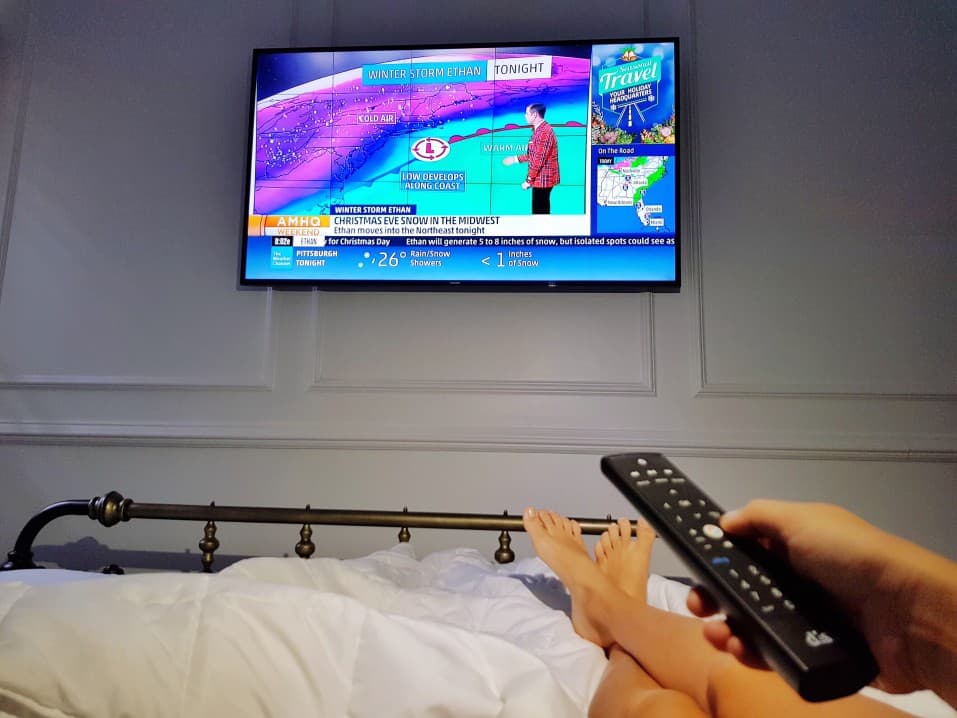


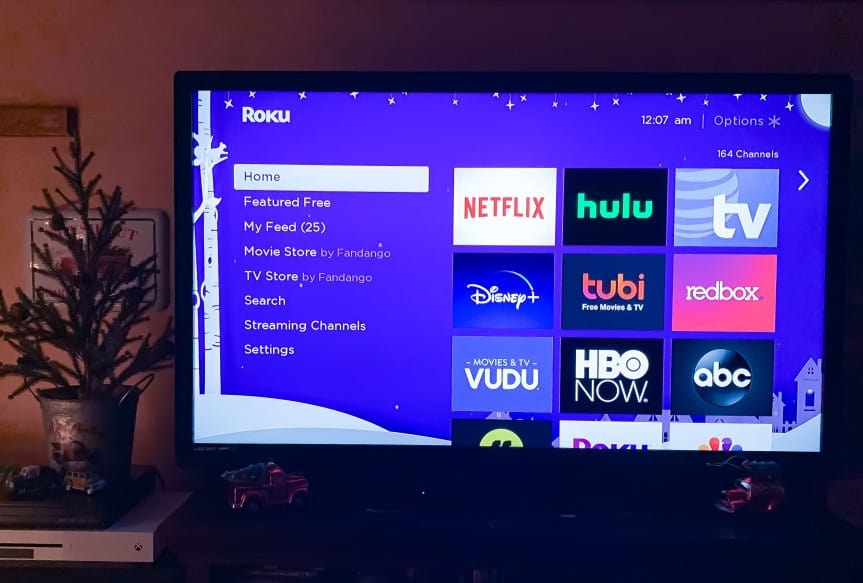
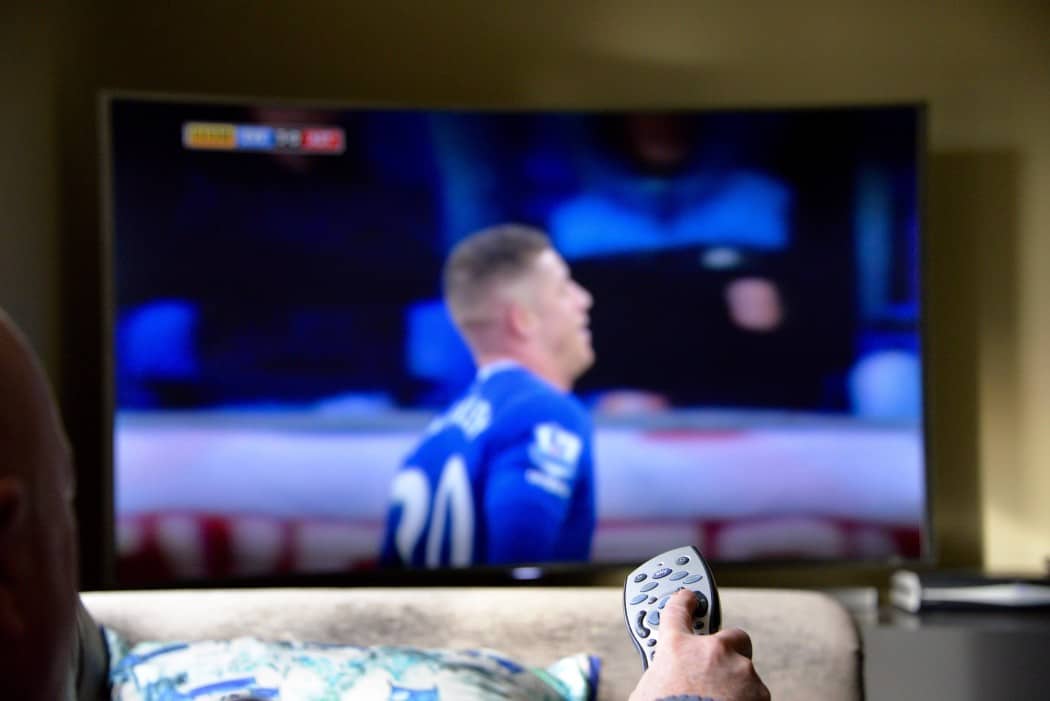
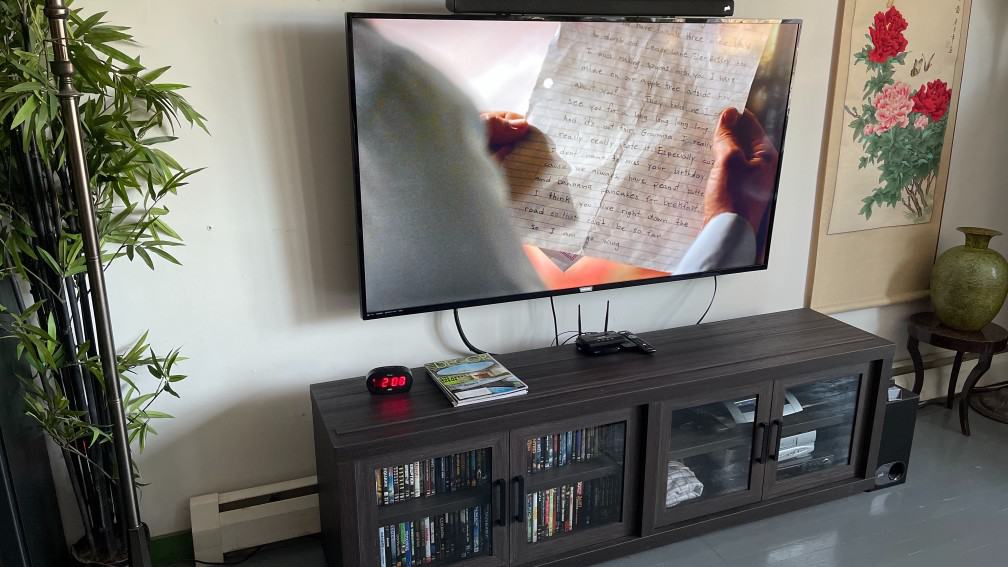
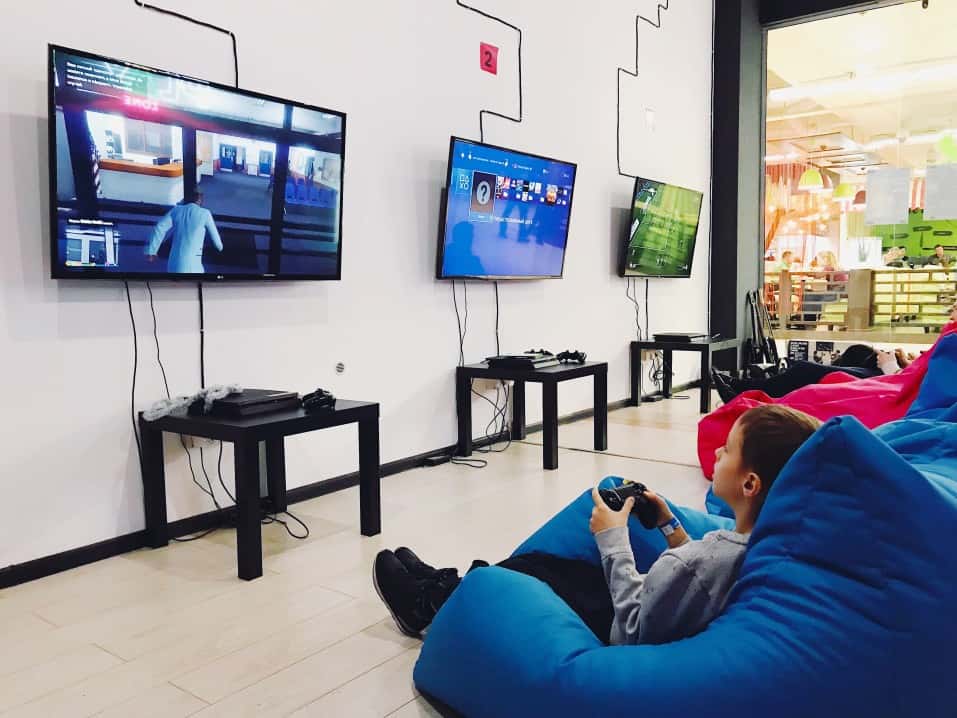

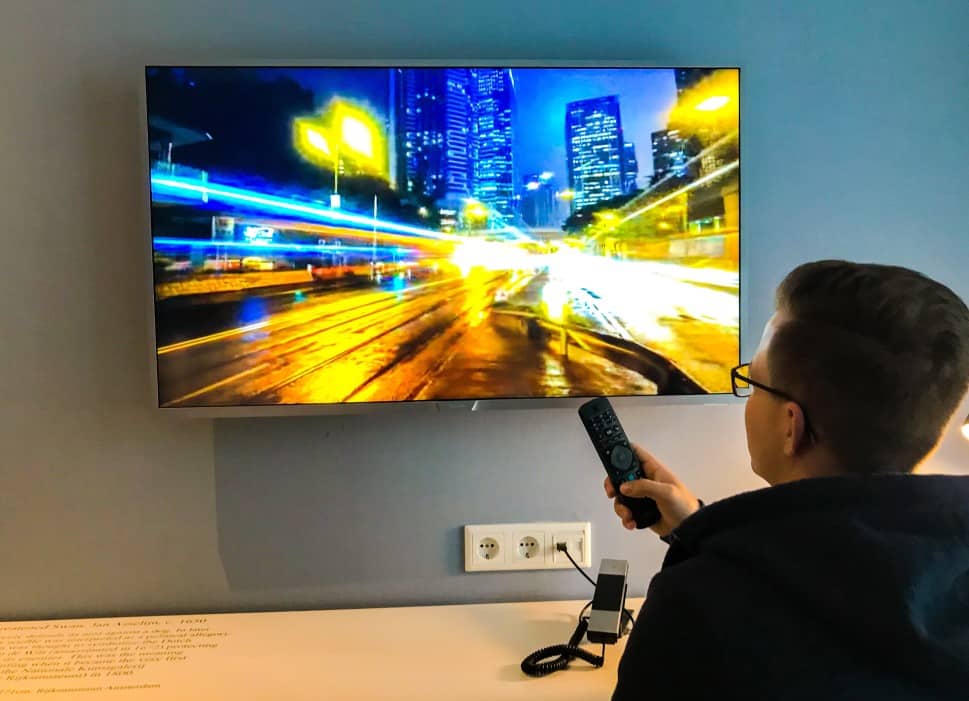




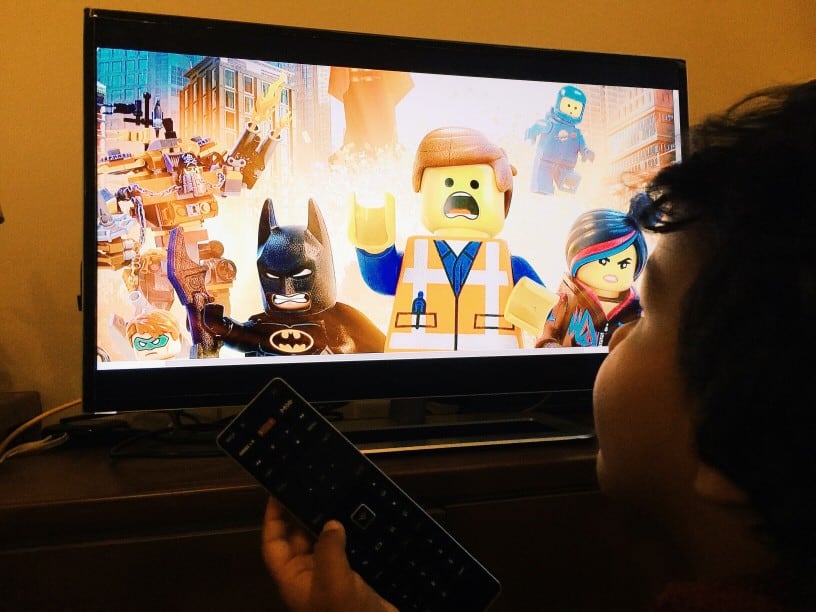
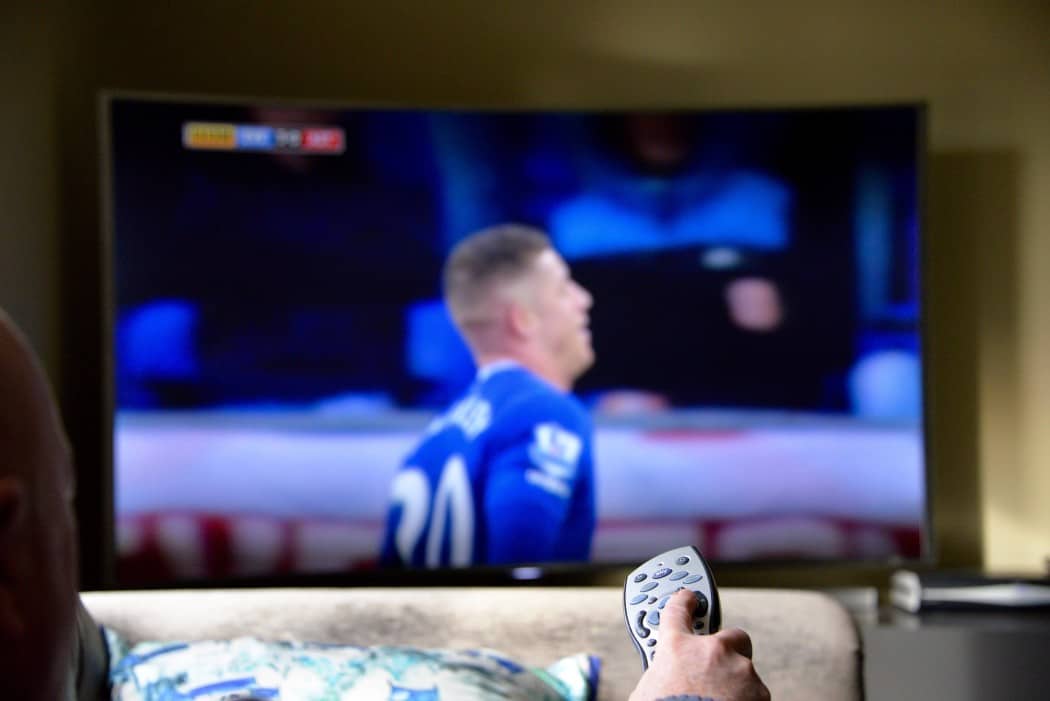

![Best Drones Under the Cost of Ferrari in [year] 30 Best Drones Under the Cost of Ferrari in 2026](https://www.gadgetreview.dev/wp-content/uploads/image-test-3.jpg)
![Best LEDs & LCDs in [year] ([month] Reviews) 31 Best LEDs & LCDs in 2026 (January Reviews)](https://www.gadgetreview.dev/wp-content/uploads/Samsung-UN65RU7100FXZA.jpg)
![Best Streaming Services in [year] ([month] Reviews) 32 Best Streaming Services in 2026 (January Reviews)](https://www.gadgetreview.dev/wp-content/uploads/netflix-750x422-1.png)
![Best Streaming Movie and Shows in [year] ([month] Reviews) 33 Best Streaming Movie and Shows in 2026 (January Reviews)](https://www.gadgetreview.dev/wp-content/uploads/Streaming-reviews.jpg)
![Best TVs in [year] ([month] Reviews) 34 Best TVs in 2026 (January Reviews)](https://www.gadgetreview.dev/wp-content/uploads/Sony-XBR55X810C-TV-1.jpg)
![Best Shows on Amazon in [year] ([month] Reviews) 35 Best Shows on Amazon in 2026 (January Reviews)](https://www.gadgetreview.dev/wp-content/uploads/The-Boys-750x474-1.jpg)
![Best Small TVs in [year] 36 Best Small TVs in 2026](https://www.gadgetreview.dev/wp-content/uploads/best-small-tv-image.jpg)
![Best 60 Inch TVs in [year] 37 Best 60 Inch TVs in 2026](https://www.gadgetreview.dev/wp-content/uploads/best-60-inch-tv-image.jpg)
![Best 50 Inch TVs in [year] 38 Best 50 Inch TVs in 2026](https://www.gadgetreview.dev/wp-content/uploads/best-50-inch-tv-imgr.jpg)
![Most Energy Efficient TVs in [year] 39 Most Energy Efficient TVs in 2026](https://www.gadgetreview.dev/wp-content/uploads/most-energy-efficient-tv-image.jpg)
![Best TVs for Apple TV in [year] 40 Best TVs for Apple TV in 2026](https://www.gadgetreview.dev/wp-content/uploads/best-tv-for-apple-tv-image.jpg)
![Best TV Antennas in [year] ([month] Reviews) 41 Best TV Antennas in 2026 (January Reviews)](https://www.gadgetreview.dev/wp-content/uploads/best-tv-antennas-image.jpg)
![Best Mitsubishi TVs in [year] 42 Best Mitsubishi TVs in 2026](https://www.gadgetreview.dev/wp-content/uploads/best-mitsubishi-tv-image.jpg)
![Best Smart TVs in [year] ([month] Reviews) 43 Best Smart TVs in 2026 (January Reviews)](https://www.gadgetreview.dev/wp-content/uploads/best-smart-tvs-image.jpg)
![Best Conference Room TVs in [year] 44 Best Conference Room TVs in 2026](https://www.gadgetreview.dev/wp-content/uploads/best-conference-room-tv-image.jpg)
![Best Dumb TVs in [year] 45 Best Dumb TVs in 2026](https://www.gadgetreview.dev/wp-content/uploads/best-dumb-tv-image.jpg)
![Best 80 inch TVs in [year] 46 Best 80 inch TVs in 2026](https://www.gadgetreview.dev/wp-content/uploads/best-80-inch-tv-image.jpg)
![Best Shows on Hulu in [year] ([month] Reviews) 47 Best Shows on Hulu in 2026 (January Reviews)](https://www.gadgetreview.dev/wp-content/uploads/The-Handmaids-Tale-750x422-1.jpg)
